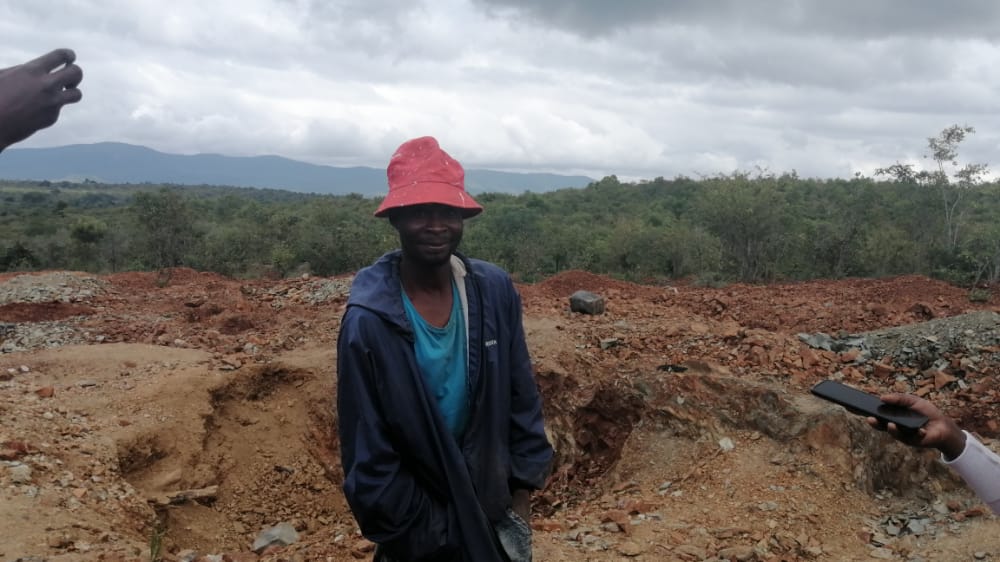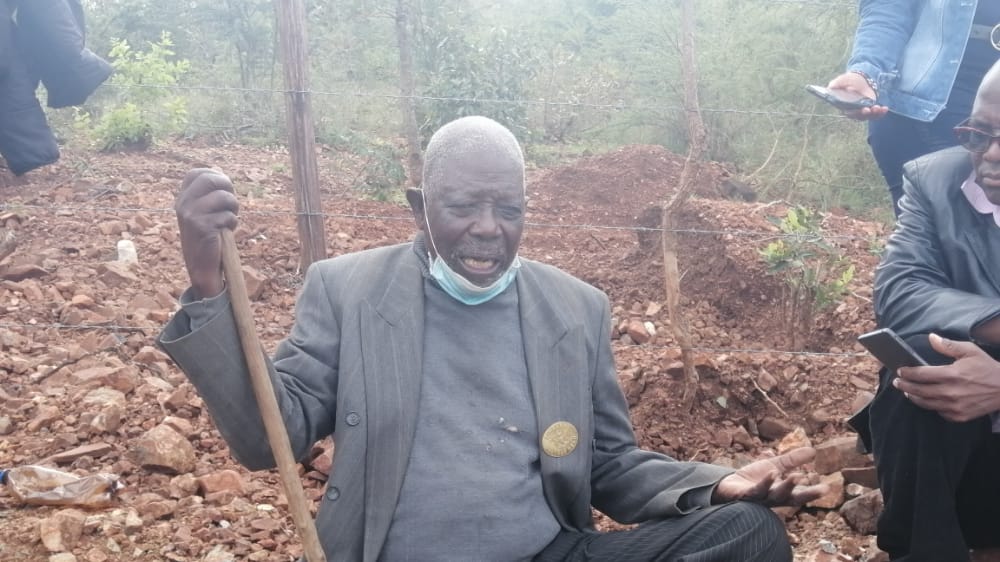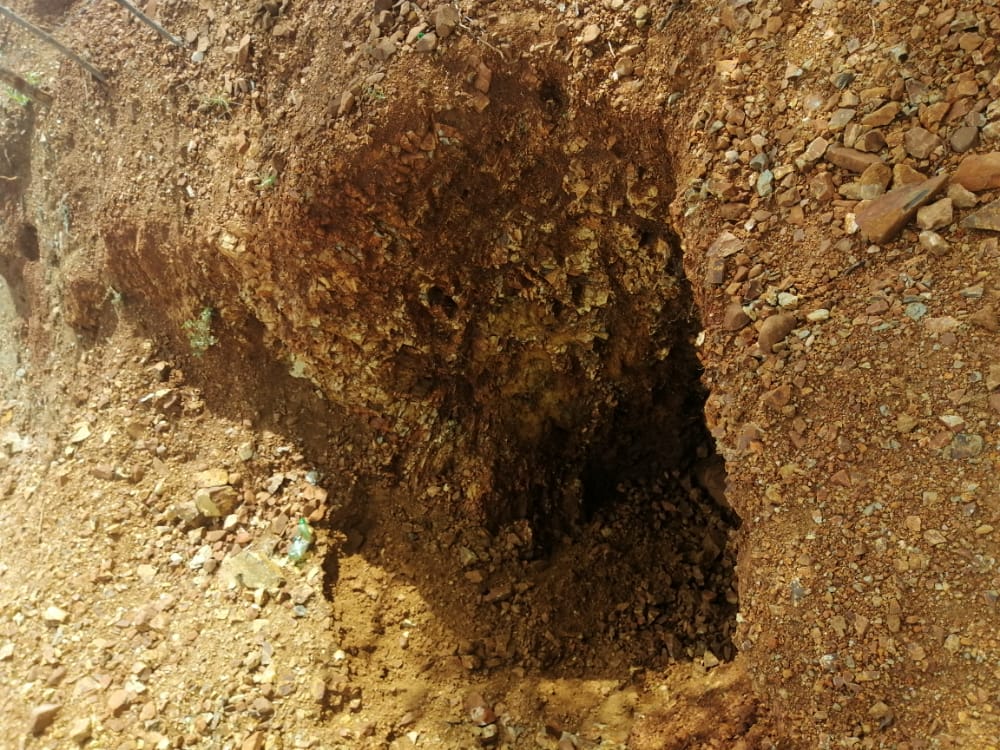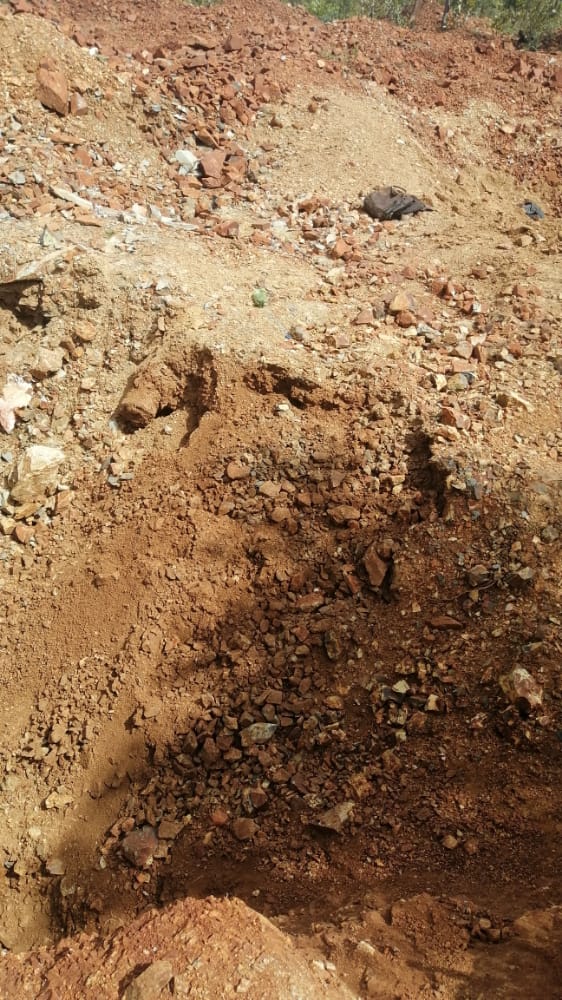By Tatenda Chitagu
WENDEDZO, MASVINGO-Two grubby boys in their mid-twenties are camoufloudged by the red soils while submerged in the massive pits and shafts that go deep down into the belly of the earth.
For starters, this is the area where there was a mad gold rush in February last year that drew hundreds of illegal gold panners from all corners of the country looking for the precious mineral.
The area used to be a cattle ranch owned by George Hartley, a former senator in the Rhodesian government. He lost the farm in the early 2000s during the land reform exercise which ushered in the black farmers.
The fortune seekers descended on the usually quiet place-about 25 kilometers east of Masvingo city-for about two weeks playing the cat and mouse game with the law enforcement agents before the gold was depleted. Some of the artisinal miners that used crude open mine casting methods that left dip pits on the environment slept on shop verandas, some on tree tops and others in the bushes. They allegedly committed a lot of crimes that include stealing from locals, rape as well as violence.
An estimated 50 kgs of gold were mopped up with impunity from the area, with alleged politically connected syndicates being the biggest beneficiaries that allegedly sold it on the parallel market.
But few panners like the two boys who refused to be identified still believe they can still get some leftovers.
“We are just trying our luck….we believe we can get something from the remnants. We are unemployed and this is how we think we can survive,” he says, throwing his calloused palms into the air.

One year on, what is left are massive pits and tunnels which are dangerous to animals and humans-testimony that the resource turned out to be a curse for the Wendedzo villagers.
Village head Sayina Chinomwe said the unfilled pits are now a threat to their livestock, which is their source of income in the area that is prone to climate change-induced droughts.
“We lost out from the gold deposits which ironically fell in our area. People from outside who were connected and powerful benefited, while we were shut out by the police and soldiers.
“As if that was not enough, they did not fill these pits and shafts that you can see which pose a danger to our animals and humans as well. This was part of our grazing land for our livestock, but it has been degraded,” he said.

Environmental Management Agency (EMA) Masvingo provincial environmental education and publicity officer Brian Makani said they issued tickets to several people during the gold rush.
Hundreds of illegal panners were also arrested by the police and prosecuted.

Flora and Fauna Zimbabwe (FaFloZim) director Fidelicy Nyamukondiwa said their efforts of trying to convince locals to fill the pits are falling on deaf ears.
“We tried to convince the locals to reclaim the degraded land, but it is a hard sell. They actually want to be paid for it since they say they did not benefit from the gold deposits. But we are trying to tell them that it is their area which is scarred,” he said.
Nyamukondiwa said his organisation-which operates in the area-is looking
for resources to try and motivate the villagers to fill the pits.
“Our volunteers are willing to take part in the reclamation exercise, but we need some resources. The local leadership is supportive of the idea. We intend to secure trees and plant them here,” he said.
Despite the reclamation efforts being planned, the two local panners still on the scene continue digging, trying their luck-and adding more environmental woes to the area.


One response to “Masvingo mad gold rush: the aftermath, one year on”
Thanks for your blog, nice to read. Do not stop.